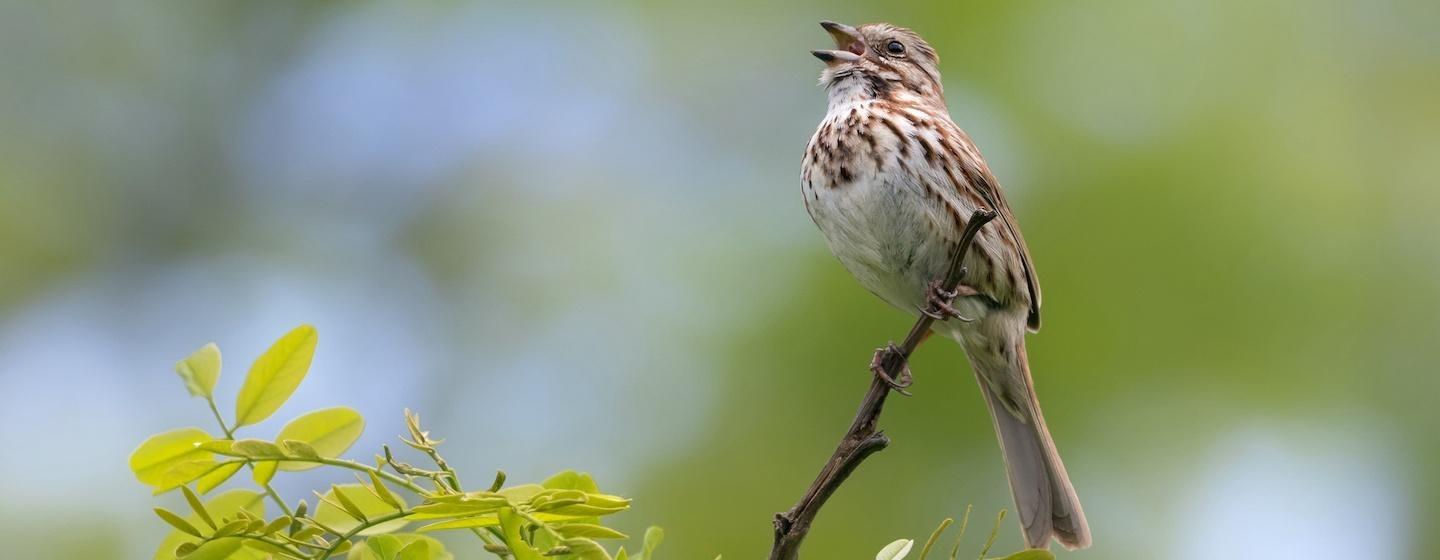Why Song Sparrows Switch Up Their Tunes


Song sparrows are a common sight at bird feeders, but their “playlist” of tweets is way more complicated than researchers thought.
Male song sparrows use their song to attract mates and defend territory. New research from Duke and the University of Miami found that sparrows deliberately switch up the order of their songs, possibly to keep the ladies interested.
Sparrows can use up to 12 different songs during a performance, which can take up to 30 minutes to get through. But scientists weren’t sure if the variation between performances was purely accidental, or on purpose.
To find out, the team recorded birds for five hours a day, and analyzed the results. They found that male sparrows sang through their entire playlist before repeating a song, like a playlist. Sparrows also, like a good DJ, kept track of how often they repeated a song and tried to avoid overplaying tunes that the males already belted several times.
The finding show that song sparrows have a unique talent for memory — what a male sparrow decides to sing depends on what he remembers he sang 30 minutes ago. Scientists call this “long-distance dependencies.” The song sparrow has a 360 times larger capacity for memory than a canary, which can only remember 5 seconds of song information.
The team says it’s not clear that this ability to remember and juggle song tracks gives specific male sparrows an advantage in mating. That’s for later research. But for now, the research shows that it’s not just humans that rely on specific word order to give meaning to language.
Listen to the song sparrow's playlist here and find out why birds sing loudly in the morning below!
By studying the trill rate of swamp sparrows, (range of notes, speed of beak movement) Duke University researchers confirm that birds sing more loudly and longer just before dawn. But not just to greet the new day, it turns out they do it to warm up before singing during the day to attract mates.